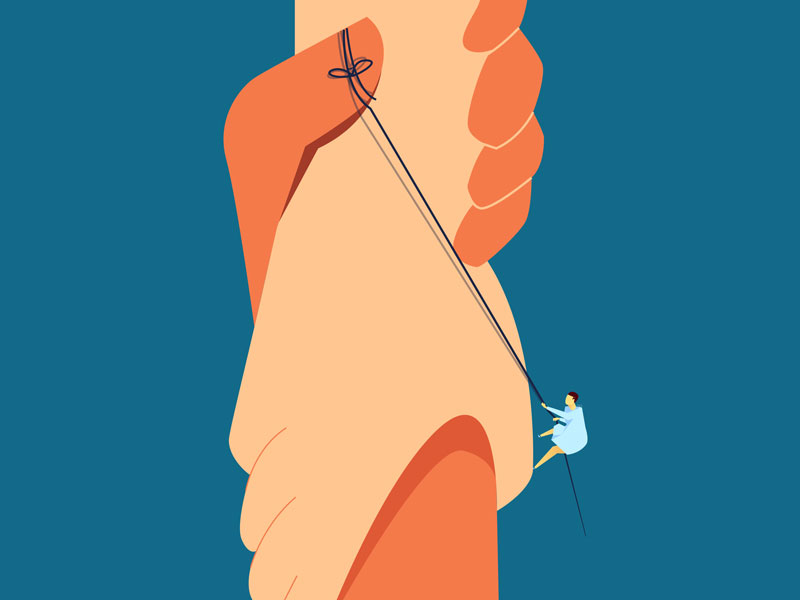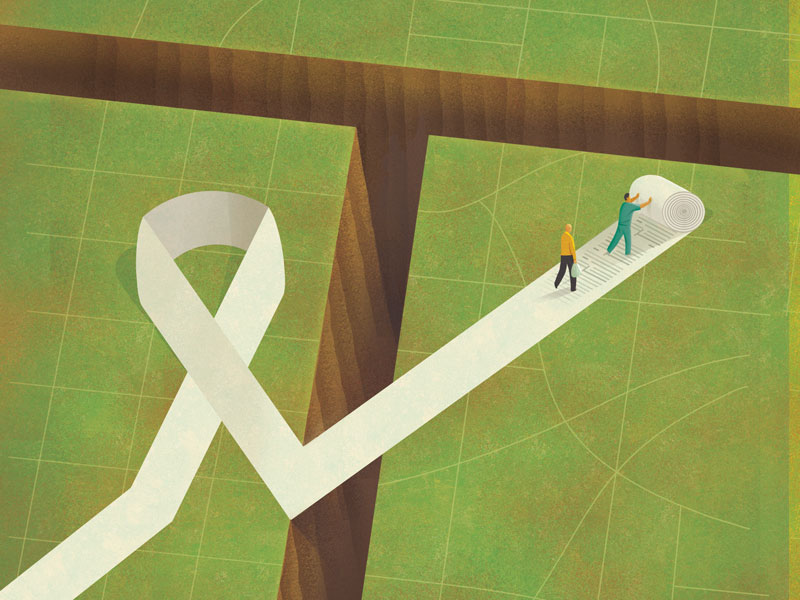Oncology Nurse Educates Congressional Staff About the Importance of Palliative, Hospice Care

As a hematology and oncology nurse, I’ve seen countless patients in treatment and recovery, and I’ve seen some lose their fight against cancer. In June 2018, I had the privilege to represent ONS as the sole nurse selected to advocate for palliative care with one of ONS’s coalition partners, the Patient Quality of Life Coalition (PQLC), where I was able to share my perspective and the many aspects of my role as a nurse with congressional staff. As the sole practitioner in the five congressional meetings, I provided insight about how nurses interact with patients, particularly during cancer treatment.
- Read more about Oncology Nurse Educates Congressional Staff About the Importance of Palliative, Hospice Care
- Add new comment
FDA Commissioner Addresses Chronic Pain and Opioid Use

As the opioid epidemic ravages American lives, every federal agency with an opportunity to review access is stepping up efforts to find appropriate lines between offering proper care and potentially enabling abuse. In a recent statement, U.S. Food and Drug Administration (FDA) Commissioner Scott Gottlieb, MD, acknowledged the challenge of balancing quality care efforts with overprescribing medications and the potential ease of access to opioids.
How Inhaled Cannabis May Contribute to Pulmonary Toxicity in Patients With Cancer

As medical use of cannabis is increasingly legalized across the United States, oncology nurses need to become more familiar with the implications of patients using it for cancer symptom management. According to Merkle and Tavernier in their article in the August 2018 issue of the Clinical Journal of Oncology Nursing, little research has been conducted in medical cannabis use and the efficacy and toxicity of cancer treatment. Their article reviewed current literature to better understand the effects that cannabis may have on the lungs in patients with cancer.
- Read more about How Inhaled Cannabis May Contribute to Pulmonary Toxicity in Patients With Cancer
- Add new comment
Learn to Write Effective Resumes and CVs

Writing resumes and curriculum vitae (CVs) can seem like an easy task at first but can quickly become overwhelming and cumbersome; even small mistakes on your resume or CV can hurt your chances at getting hired. Heather Costa, SHRM-CP, a recruiter for the Ohio State University Wexner Medical Center-the James, in Columbus, presented tips and tricks that oncology nurses can use to make their resumes and CVs effective, clean, and concise.
GOP Pre-Existing Conditions Bill; Biden in Pittsburgh; McCain’s Healthcare Legacy

As the Affordable Care Act is challenged in court, 12 Republican Senators signed a letter insisting that pre-existing conditions be covered in any new healthcare laws moving forward. Despite initial praise for the GOP, many patient advocacy groups, including the American Cancer Society Cancer Action Network, have voiced concerns about the efforts being far too little and far too late. On September 4, 2018, more than 25 patient advocacy groups came together and released a statement condemning a recent Republican bill stating it didn’t provide enough protections for pre-existing conditions, compared to what’s currently covered under the ACA. The advocacy groups noted the bill's outlying weaknesses and pushed for stronger reassurances.
- Read more about GOP Pre-Existing Conditions Bill; Biden in Pittsburgh; McCain’s Healthcare Legacy
- Add new comment
What the Research Says About Supporting Cancer Survivors in Non-Oncology Settings

In 2016, the American Cancer Society (ACS) reported that the number of currently living cancer survivors is estimated at 15.5 million Americans. For 2018, ACS is projecting another 1.7 million new cases of cancer diagnoses. On one hand, the growing number of survivors indicates that early diagnosis, new technologies, targeted interventions, treatment options, and access to care are making a huge difference for patients.
- Read more about What the Research Says About Supporting Cancer Survivors in Non-Oncology Settings
- Add new comment
Understand Your Personal Learning Needs (and Get the Resources to Meet Them) to Attain Certification

Oncology nurses can benefit from various types of certifications for professional development. Angie Caton, BSN, RN, OCN®, CHPN, and Melody Ann Watral, MSN, RN, CPNP-PC, CPON®, presented tools on how to better prepare for certifications, how to choose test preparation resources, and ways to assess your personal learning needs.
- Read more about Understand Your Personal Learning Needs (and Get the Resources to Meet Them) to Attain Certification
- Add new comment
What Do You Stand For?

Some lines are more memorable than others. In the Broadway musical Hamilton, Alexander Hamilton challenges Aaron Burr with this statement: “If you stand for nothin’, Burr, what will you fall for?”
I have stolen that line when teaching nurses about bullying and incivility in our workplaces. Unfortunately, this is a topic that we still need to talk about.
How Are You Supporting Survivors Through EMR-Integrated Survivorship Care Plans?

Incorporating survivorship care plans into a hospital’s electronic medical records (EMRs) can be a tremendous aid for oncology nurses supporting their patients entering survivorship. Using the National Comprehensive Cancer Network treatment guidelines as a template for care, the oncology team can prepare a patient’s medical record with the necessary individualized information.
- Read more about How Are You Supporting Survivors Through EMR-Integrated Survivorship Care Plans?
- Add new comment
Caring for Patients Through All Levels of Survivorship

The medical terms for living with and beyond a cancer diagnosis identify patients as entering the survivorship phase of their cancer journey. However, as science continues to develop new treatments responsible for extending patients’ lives, new levels of survivorship are being determined.





